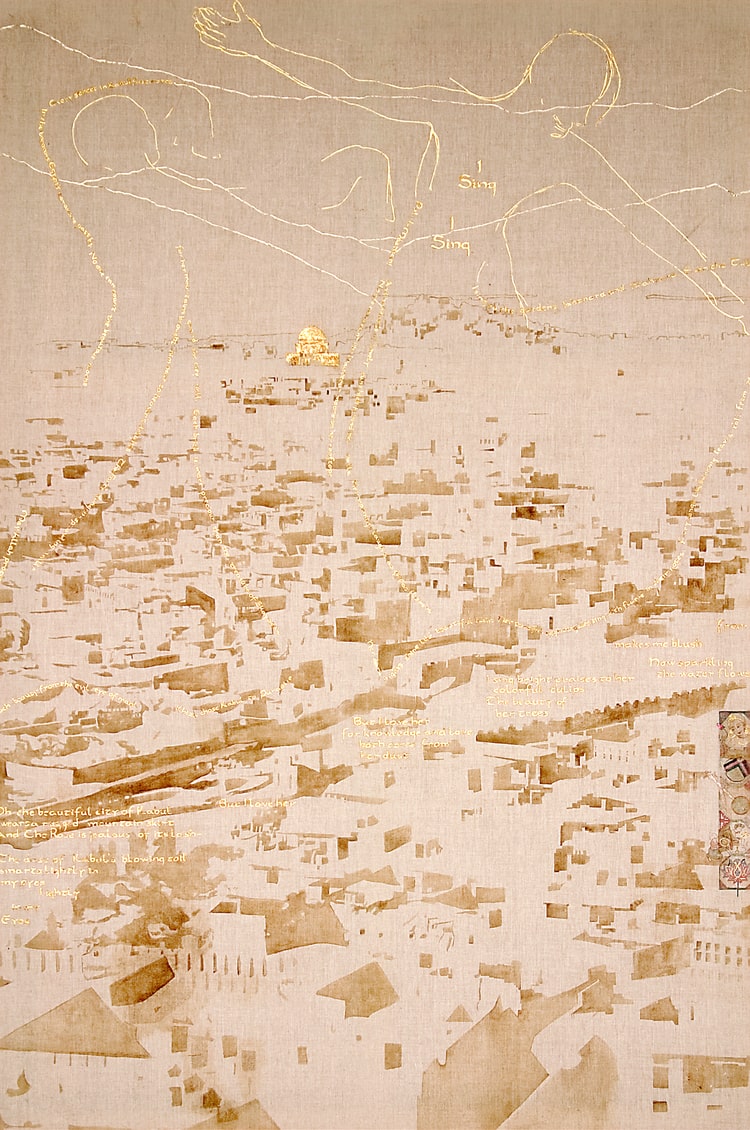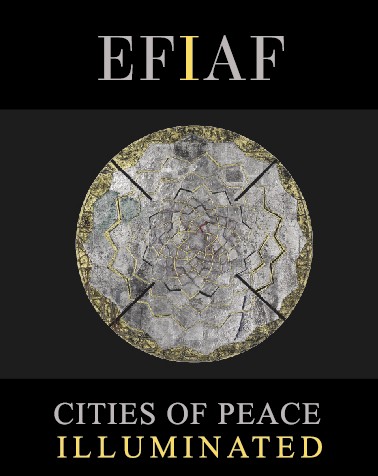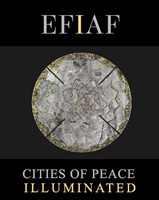
KABUL
KABUL: I LOVE HER (FOR KNOWLEDGE AND LOVE BOTH COME FROM HER DUST)
In this work, gold leaf micrography (text shaped into images) from a seventeenth-century poem illuminates the city, inspired by a panoramic photograph taken between 1870 and 1882. Celebrating Kabul (Afghanistan), the verses walk a main city road, not as an invading army but as a march of words of love. So, too, the poem delineates two dancing figures, with words of song upon one figure’s heart. Symbols of what was cherished by Afghans, then banned dance, music, books, kites are woven into the painting as if a pattern from a tribal carpet, an art form that helped to make Afghanistan renowned worldwide. Figures and mountains tower over the city as we pray for healing joy for the people, women and men alike, of Kabul.

22 karat gold leaf & 23½ karat moon gold
Interns and Artists for Kabul:
Aurora Nessly (US)
Helis Podnek (Estonia)
Kabul
Oh, the beautiful city of Kabul wears a rugged mountain skirt,
And The Rose is jealous of its lash-like thorns.
The dust of Kabul’s blowing soil smarts lightly in my eyes,
But I love her, for knowledge and love both come from her dust.
I sing bright praises to her colorful tulips,
The beauty of her trees makes me blush.
How sparkling the water flows from Pul-i-Mastaan!
May Allah protect such beauty from the evil eye of man!
Khizr chose Kabul over Paradise,
For her mountains brought him near to heaven’s delights.
The fort’s dragon-sprawling walls guard the city well,
Each brick is more precious than the treasure of Shayagan.
Every street in Kabul fascinates the eye.
In the bazaars, Egypt’s caravans pass by.
No one can count the beauteous moons on her rooftops,
And hundreds of lovely suns hide behind her walls.
Her morning’s laugh is as gay as flowers,
Her dark nights shine like beautiful hair.
Her tuneful nightingales sing with flame in their notes,
Fiery songs like burning leaves fall from their throats.
I sing to the gardens, Jahanara and Shahrara.
Even the Tuba of Paradise is Jealous of their greenery.
~ Mirza Muhammad Ali-Sa’ib (Translator unknown)

